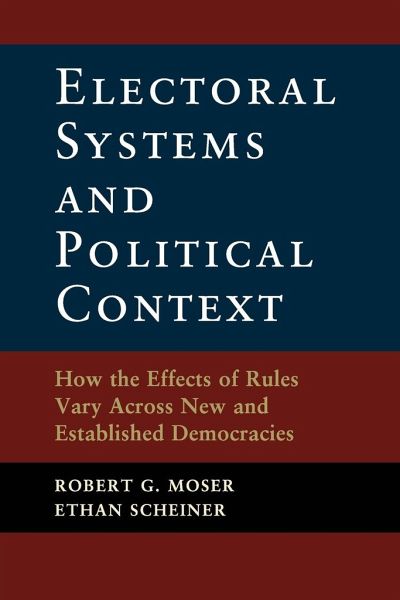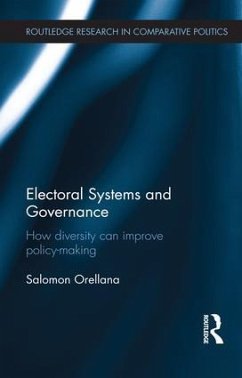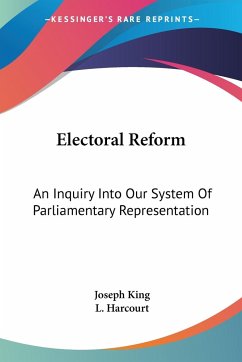
Electoral Systems and Political Context
Versandkostenfrei!
Versandfertig in 1-2 Wochen
39,99 €
inkl. MwSt.
Weitere Ausgaben:

PAYBACK Punkte
20 °P sammeln!
Electoral Systems and Political Context illustrates how political and social context conditions the effects of electoral rules. The book examines electoral behavior and outcomes in countries that use 'mixed-member' electoral systems - where voters cast one ballot for a party list under proportional representation (PR) and one for a candidate in a single member district (SMD). Based on comparisons of outcomes under the two different rules used in mixed-member systems, the book highlights how electoral systems' effects - especially strategic voting, the number of parties and women's representati...
Electoral Systems and Political Context illustrates how political and social context conditions the effects of electoral rules. The book examines electoral behavior and outcomes in countries that use 'mixed-member' electoral systems - where voters cast one ballot for a party list under proportional representation (PR) and one for a candidate in a single member district (SMD). Based on comparisons of outcomes under the two different rules used in mixed-member systems, the book highlights how electoral systems' effects - especially strategic voting, the number of parties and women's representation - tend to be different in new democracies from what one usually sees in established democracies. Moreover, electoral systems such as SMDs are usually presumed to constrain the number of parties irrespective of the level of social diversity, but this book demonstrates that social diversity frequently shapes party fragmentation even under such restrictive rules.














